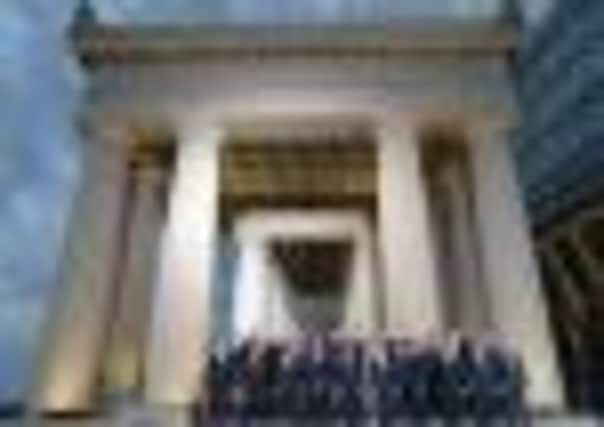Nato forces will have to fight ‘to final day in Afghanistan’


At a conference of Nato leaders in Chicago yesterday, concerns over the future of Afghanistan were raised ahead of talks on the future involvement of the organisation in the war-torn country.
In particular the Prime Minister and US president Barack Obama were trying to persuade the newly-elected French president, François Hollande, not to pull his country’s combat troops out early next year.
Advertisement
Hide AdAdvertisement
Hide AdBut even on the later 2014 deadline set by Mr Cameron and Mr Obama there were concerns that Afghanistan and its fragile government, headed by president Hamid Karzai, could fall under the influence of the Taleban again and become a haven for terrorism.
While Mr Cameron expressed confidence that the Afghan National Security Forces (ANSF) – which are set to total 352,000 – will be able to prevent al-Qaeda regaining a foothold in the country, a senior British official yesterday acknowledged that there was no guarantee that the terrorists would not make a return to the country from where Osama bin Laden launched the 11 September, 2001 attacks.
“It is unrealistic to assume that Afghanistan is going to be completely secure and there is no possibility of a terrorist threat re-emerging,” the official said.
“But our achievements of the last decade mean that we will withdraw from a country where the threat is much reduced and where Afghan forces are now much more able to respond to that threat.”
Officials have already raised the prospect that a small number of British troops – almost certainly special forces – could be retained in a counter-terrorism role after 2014.
Meanwhile, the head of the international military force, US General John Allen, warned that they faced fighting right up to the last day of their mission.
He said: “There is no end of combat before the end of 2014. And in fact, the Taleban will oppose the ANSF after 2014.”
At a press conference last night Mr Cameron admitted fighting against the Taleban would go on up to the end of Nato involvement and beyond.
Advertisement
Hide AdAdvertisement
Hide AdBut he insisted that British troops would leave the country with “their heads held high having completed their mission”.
He said they have done “a great job” and that the Taleban have been and will be defeated on every battlefield.
But he admitted that there is “a need for a political development and solution which is not within our control”.
During the talks yesterday, Mr Obama and fellow Nato leaders solidified their plans for an “irreversible transition” in Afghanistan, affirming their commitment to ending the unpopular war in 2014 and voicing confidence in the ability of Afghan forces to take the lead for securing their country even sooner.
As well as Afghanistan, the alliance’s leaders also discussed the impact of the economic crisis on their defence budgets which are becoming increasingly squeezed, particularly in the US, UK and France.
Mr Cameron and Mr Obama both called for Nato to remain proactive, but said the future was about different members specialising in different areas and working more closely together.